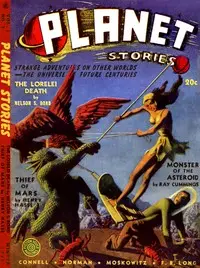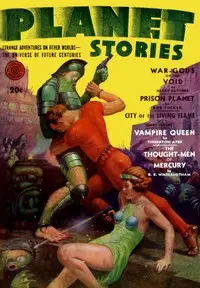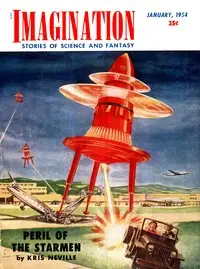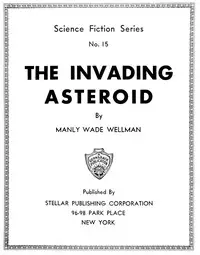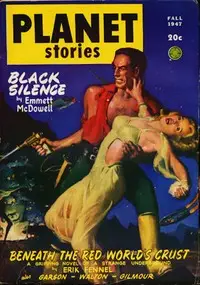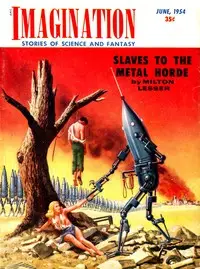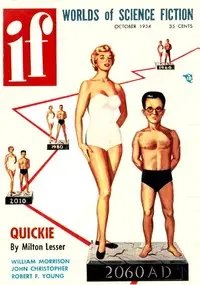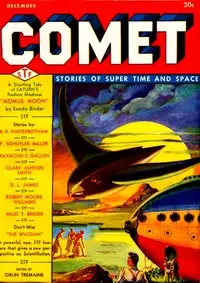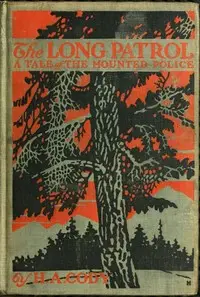"Exit From Asteroid 60" by D. L. James is a science fiction story set in the 1940s that plunges into a world where humans are enslaved on Echo, a Martian satellite, to mine ore for their Martian overlords. Neal Bormon, an Earthman forced into labor, along with his companion Keith Calbur, endure grueling conditions and fight the effects of a sleep-preventing drug. Driven to desperation, they hatch a daring escape plan upon learning the secret of the Martian's ore-transporting cyclotron. Amidst danger and innovative strategies, Bormon faces deadly peril, eventually igniting a beacon of hope for freedom among the enslaved Earthmen. The story reaches its peak when the Earth-Mars Space Police uncover the Martian plot, leading to a rescue that underscores sacrifice and unwavering resilience.
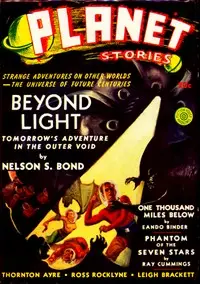
Exit From Asteroid 60
By D. L. (Daniel Lewis) James
On a Martian satellite, enslaved Earthmen plot a daring escape, revealing a conspiracy that could ignite a war between planets.
Summary
About the AuthorDaniel Lewis James Jr., was an American writer, best known for his novel, Famous All Over Town, about Mexican-Americans in Los Angeles. He published the novel under his pseudonym, Danny Santiago, and during most of his professional career, he kept his identity a secret. James's own agent Carl Brandt did not know his real name until it was revealed by fellow author and friend, John Gregory Dunne. Some critics call this use of a Latino pseudonym a literary fraud, while others appreciate his contributions to literature, regardless of his race. Although he was white, some critics believed he was able to convey an accurate portrait of the Chicano culture.
Daniel Lewis James Jr., was an American writer, best known for his novel, Famous All Over Town, about Mexican-Americans in Los Angeles. He published the novel under his pseudonym, Danny Santiago, and during most of his professional career, he kept his identity a secret. James's own agent Carl Brandt did not know his real name until it was revealed by fellow author and friend, John Gregory Dunne. Some critics call this use of a Latino pseudonym a literary fraud, while others appreciate his contributions to literature, regardless of his race. Although he was white, some critics believed he was able to convey an accurate portrait of the Chicano culture.

